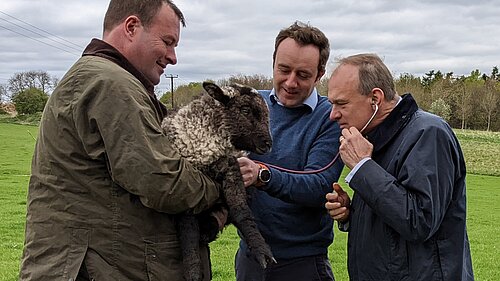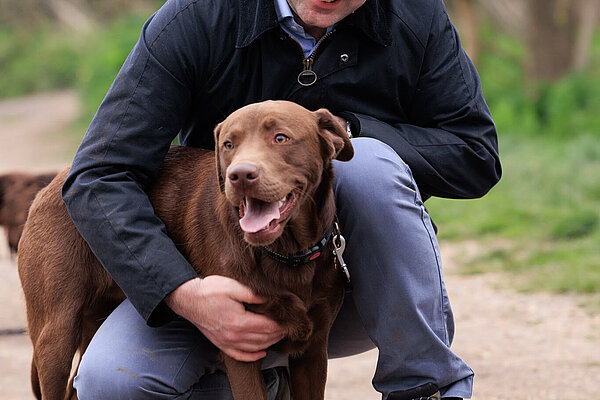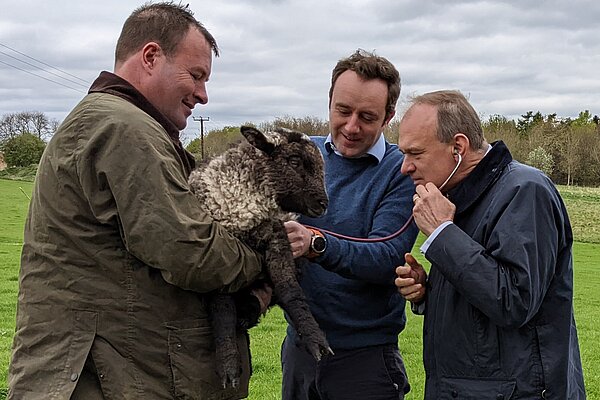The Government has axed the Kept Animals Bill

In my capacity as a veterinary surgeon, I am compelled to express my thoughts not as the Liberal Democrat candidate for MP, but as a professional dedicated to animal welfare.

The government's decision to axe the Kept Animals Bill at the 11th hour is hugely disappointing. I share in the dismay expressed by the British Veterinary Association, the Dogs Trust, and several other organisations that have worked so hard for so long to get this bill over the line, and judging by the messages I’ve received from the public and fellow veterinary surgeons, most people share our frustration.
The significance of this bill cannot be overstated, as it aimed to address critical issues pertaining to animal health and welfare. The British Veterinary Association President, Malcolm Morley, who lives in Chandler’s Ford said, “News that the Kept Animals Bill will not progress through parliament is extremely disappointing. This crucial legislation, and the package of measures it contained, would have prevented the immeasurable suffering of thousands of animals, by tackling puppy smuggling, the importation of dogs with cropped ears, live animal exports and the keeping of primates as pets.”
Consequently, the repercussions on animal welfare of shelving this legislation are huge.
These concerns are far from hypothetical. As a practising vet I know it is a common occurrence for dogs with cropped ears, a painful and purposeless mutilation, to be brought into veterinary practices. This cruel procedure is carried out in the UK and abroad by people with no veterinary training merely serves to create an aesthetic image associated with certain breeds.
The bill also included measures to tackle the alarming rise in puppy smuggling, particularly from Eastern Europe. This not only poses a major threat to animal welfare but also carries public health implications, as the imported puppies can introduce diseases that can infect humans such as Brucella canis and rabies. The banning and enforcement of the importation of young puppies and pregnant bitches would have been hugely effective and curtailing this illegal trade.
Dog attacks on livestock cause distress to farmers, anguish to the animals involved, and cost the farming industry over £1.8 million a year - a figure that has been rising year on year.
The pandemic led to a surge in puppy prices, which has also led to a significant increase in the theft of pet dogs. Under current law pets are viewed merely as property with a monetary value. However, this bill aimed to address this issue by advocating for sentences that acknowledge the emotional impact such thefts have on both the animals and their owners, highlighting the unique bond shared between them.
Regrettably, the Conservative government's track record reveals a pattern of broken promises, including the negotiation of trade deals that undermine our animal welfare and environmental standards. This places our farmers at a competitive disadvantage and directly contravenes the Conservative party manifesto of 2019. Such actions prove detrimental to farming, animal welfare, and the environment.
It is disheartening to witness one of the few potential opportunities presented by Brexit being squandered with respect to tightening our national biosecurity and regulating the import of animals. Instead, we find ourselves in a race to the bottom, with the erosion of our animal welfare and environmental standards. Whether it be permitting the dumping of sewage in rivers with the damage that has on wildlife and ecosystems, or facilitating the illegal importation of puppies and pregnant dogs, this Conservative government has forsaken any semblance of credibility when it comes to animal welfare and environmental concerns.
Even as a veterinarian, I am well aware that there are numerous pressing issues at the forefront of people's minds, such as the cost of living and local NHS services, that take precedence over concerns regarding animal welfare.
However, it is disheartening to witness a government that fails to push through measures that have overwhelming public support and would genuinely enhance the quality of life for pets and livestock throughout the United Kingdom.
I hope that, should I be successful at the next general election, I can use my professional training and experience to advocate for animal welfare, farming and environmental standards to ensure that legislation going forward is fit for purpose and actually reflect the desires of the overwhelming majority of the public who are feeling so let down by the indifferent attitude of Conservative MPs to animal welfare and environmental issues.

